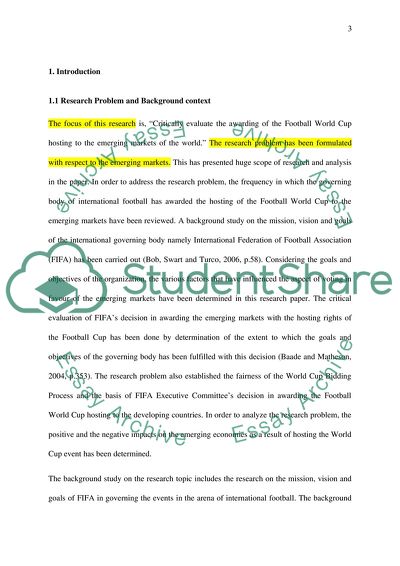Cite this document
(A Critical Evaluation of the Awarding of Football World Cup Hosting to Essay, n.d.)
A Critical Evaluation of the Awarding of Football World Cup Hosting to Essay. Retrieved from https://studentshare.org/sports-and-recreation/1814456-a-critical-evaluation-of-the-awarding-of-football-world-cup-hosting-to-emerging-markets
A Critical Evaluation of the Awarding of Football World Cup Hosting to Essay. Retrieved from https://studentshare.org/sports-and-recreation/1814456-a-critical-evaluation-of-the-awarding-of-football-world-cup-hosting-to-emerging-markets
(A Critical Evaluation of the Awarding of Football World Cup Hosting to Essay)
A Critical Evaluation of the Awarding of Football World Cup Hosting to Essay. https://studentshare.org/sports-and-recreation/1814456-a-critical-evaluation-of-the-awarding-of-football-world-cup-hosting-to-emerging-markets.
A Critical Evaluation of the Awarding of Football World Cup Hosting to Essay. https://studentshare.org/sports-and-recreation/1814456-a-critical-evaluation-of-the-awarding-of-football-world-cup-hosting-to-emerging-markets.
“A Critical Evaluation of the Awarding of Football World Cup Hosting to Essay”, n.d. https://studentshare.org/sports-and-recreation/1814456-a-critical-evaluation-of-the-awarding-of-football-world-cup-hosting-to-emerging-markets.


